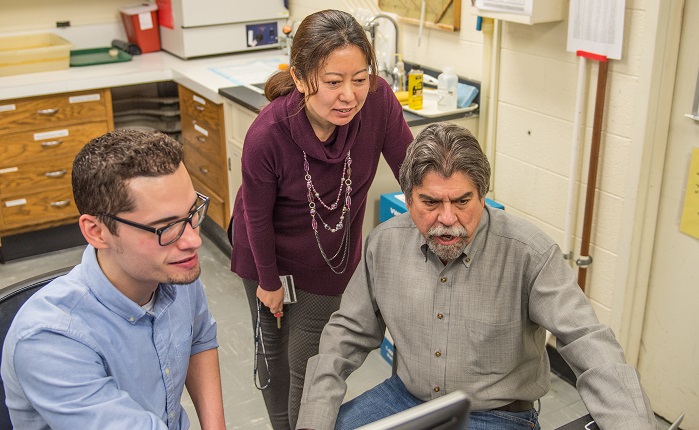Podcast: Play in new window
Lily Yan, associate professor of psychology, Antonio Nunez, professor of psychology. Joel Soler, doctoral student in psychology. (Derrick Turner)
BOB HIRSHON (host):
Low light learning deficits. I’m Bob Hirshon and this is Science Update.
Living under dim indoor lighting dims our memory and reduces our ability to perform tasks we’ve just learned, according to Michigan State University neuroscientist Tony Nunez. Now, he and his colleagues are looking for explanations by studying Nile grass rats, rodents that are diurnal, or active during the day, just like humans. In the journal Hippocampus, they report that rats kept in low light had reduced levels of a chemical essential for memory and learning.
TONY NUNEZ (Michigan State University):
And, more impressive, I think, the morphology, the way the brain cells look had changed, reducing the capacity of these neurons by a significant proportion.
HIRSHON:
Bright daylight restored their mental abilities, but Nunez says their lab animals were young. Now they’re looking into whether the effect is reversible in older animals. I’m Bob Hirshon, for AAAS, the science society.
Story by Bob Hirshon

